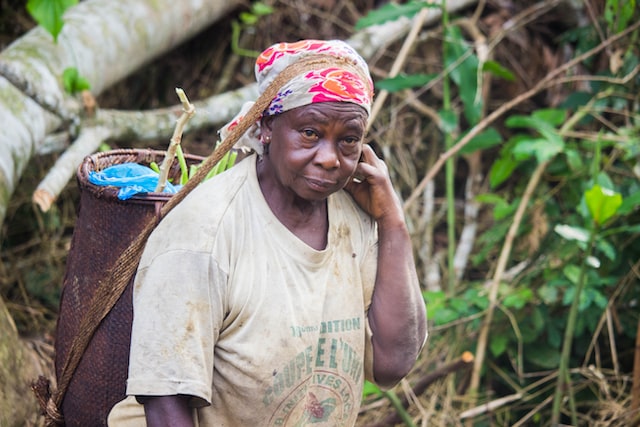The Gumuz People (likewise spelled Gumaz and Gumz) are an ethnic gathering in a Nilo-Saharan language occupying the Benishangul-Gumuz Region and the Qwara woreda in western Ethiopia, as well as the Fazogli district in Sudan. They communicate in the Gumuz language, which has a place with the Nilo-Saharan family. The Gumuz number around 200,000 people.
Also Read: The Ethiopian Bible is the Original Bible and the Best Bible Version
Socio-Economics of Gumuz People
90.000 Gumuz live in the ripe forested fields and slopes north of Dinder National Park and across the line in western Ethiopia where they number 200.000 individuals. The Gumuz are fundamentally situated in eastern Sudan. This region is known as a “shrub savanna” locale since generally level for certain stone slopes are covered with bamboo and other little trees.
History of Gumuz People
The Gumuz have customarily been gathered with other Nilotic people groups living along the Sudanese-Ethiopian line under the aggregate name Shanqella (Pankhurst 1977). As “Shanquella”, they are as of now referenced by Scottish traveler James Bruce in his Travels to Discover the Source of the Nile, distributed in 1790. He takes note of that they chased with bows and bolts, a custom that endures today.
Most Gumuz individuals live in a bush savanna marsh climate. As per their customs, in prior times they occupied the western pieces of the territory of Gojjam, yet were logically expelled to the cold region of the Blue Nile and its tributires by their all the more impressive Afroasiatic-talking neighbors, the Amhara and Agaw, who additionally oppressed them (Wolde-Selassie Abbute 2004). Subjugation didn’t vanish in Ethiopia until the 1940s. Relatives of Gumuz individuals taken as captives to the area only south of Welkite were found to in any case be communicating in the language in 1984 (Unseth 1985).
Also Read: Majang People in Ethiopia: Language, Culture and Economy
Economy and Society
The Gumuz public hunt with bows and bolts, and others breed cows or ranch professionally. At the point when a child arrives at the age of 16, he might work his own farm alongside his father. During the reaping season, they fabricate huts on the edge of the farmland and live there. They develop millet, sorghum, onion, cotton, tobacco, mango, and different flavors. The staple food of the Gumuz is porridge enhanced with a sauce produced using leaves, onions, and flavors.
They supplement their eating regimen with pumpkin seeds, peanuts, organic product, and a few bugs, and – in the same way as other of us – they like to drink coffee. Since they are ranchers, exchanging is essential to them, yet the absence of streets makes this troublesome. They exchange most frequently with the close by Arab pioneers or with the Oromo nation from Ethiopia. In return for their products, they get espresso, material, cleanser, salt bars, and different things.
The close idea of the Gumuz keeps their local area strong, and when there is an infraction, the whole group includes itself in the punishment. Punishment is distributed for such things as stealing, lying, and wife misuse, downplaying intoxication, and inactivity. At the point when a girl is prepared for marriage, the tribes play out a “sister trade.” That is, the recently hitched man gives his wife’s family a young lady from his own group to “supplant” the lady he wedded.
Also Read: Why Ethiopians Celebrate Christmas on January 7
Culture and Religion of Gumuz People
The Gumuz of Sudan actually have an alternate focus on the encompassing clans. Gumuz ladies wear well planned enormous aluminum hoops and many beaded accessories. The more seasoned age has metal nose piercings and body scarification. The Gumuz of Sudan have been compelled to change over into Islam over the most recent 30 years, but to them Islam is as yet shallow and superficial so they practice traditional religion in the little mountain towns. Spirits are called mus’a and are remembered to stay in houses, fields, trees and mountains.
They have ceremonial experts called gafea. Rebba is their “incomparable god who knows all.” The Gumuz immovably trust that in the event that a lady drinks milk, she will go uncovered, and in the event that a man eats cabbage, he will be lazy. On the off chance that a lady eats porridge while she is making it, they accept she or her significant other will turn out to be sick.
Initially, all Gumuz enhanced their bodies with scarifications, yet this custom is vanishing through government tension and education. All Gumuz are coordinated in factions. Fights between families are normal and they are generally tackled through a foundation of the resolution, called mangema or michu relying upon the locale. As it used to be among the Sudanese Uduk, marriage is through sister exchange.
Sources:
Joan Riera – Anthropologist (LastPlaces.com)
Wikipedia.org
